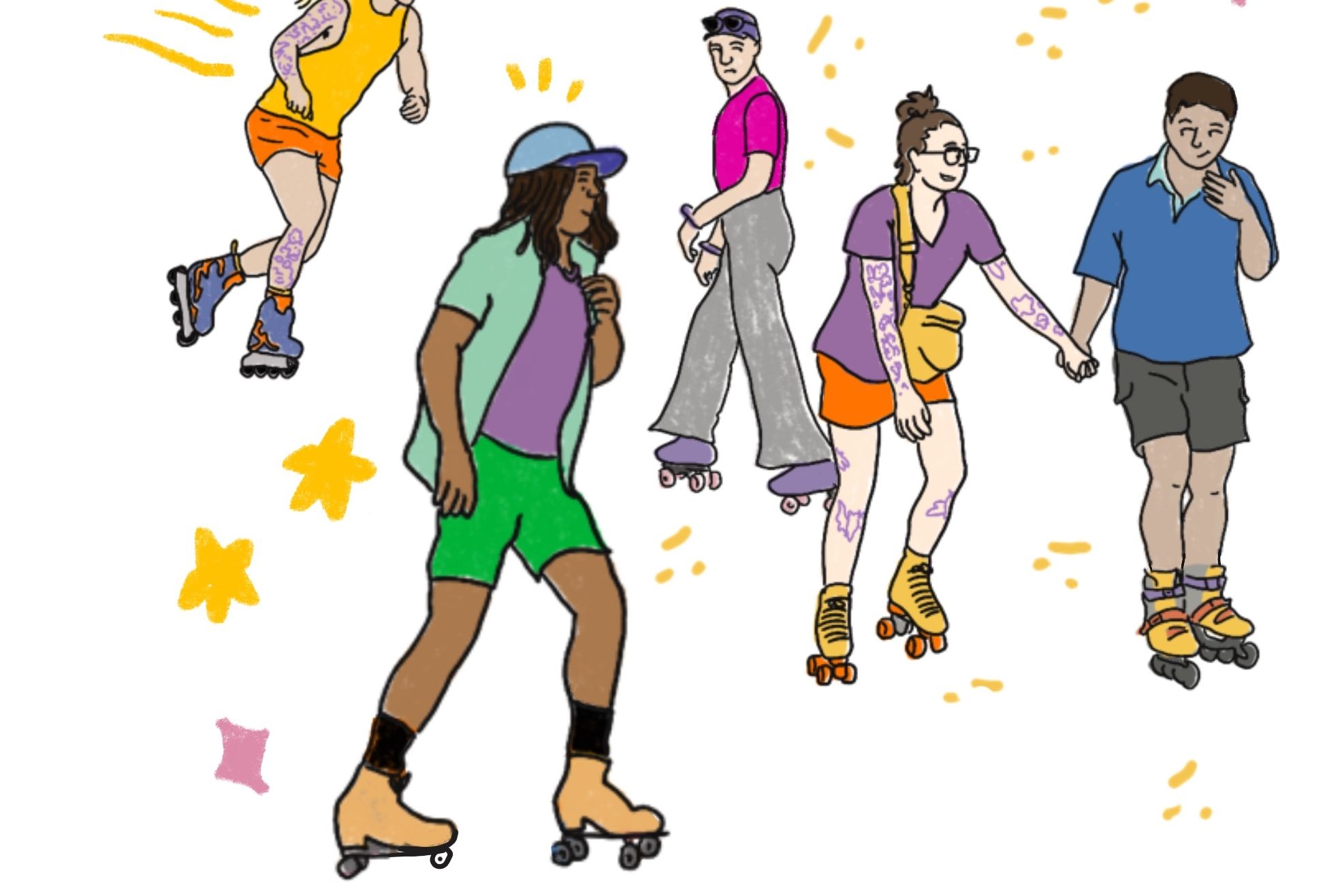This Video Game Tells People to Stop Touching Black Women’s Hair
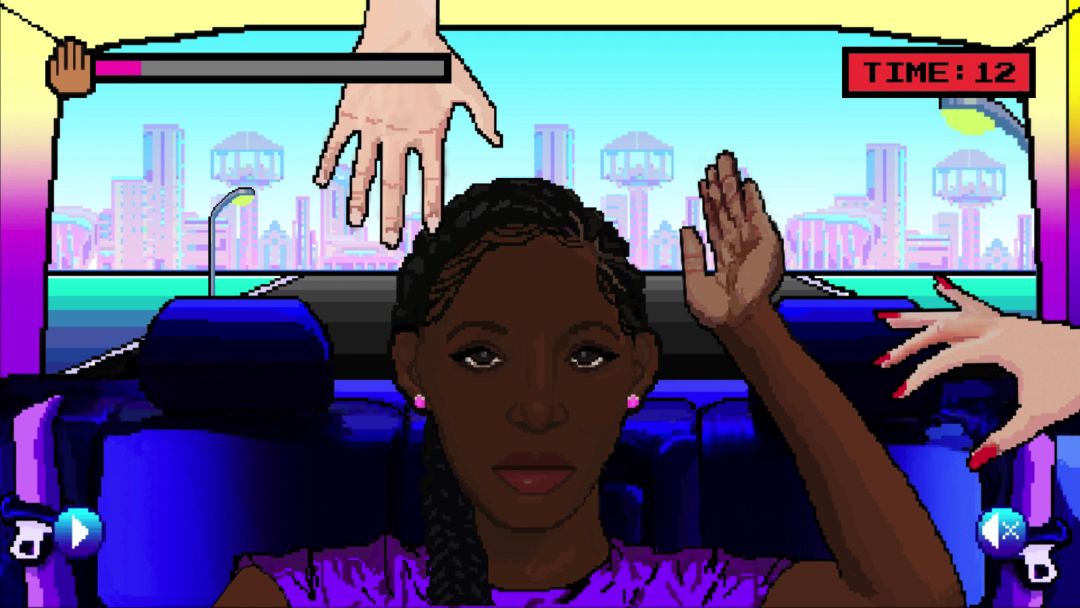
In Hair Nah, a traveler must whack away hands to reach her destination.
Image: Courtesy Wieden & Kennedy
Solange sang about it. Comedian Phoebe Robinson wrote an essay about it. And now, thanks to Portlander Momo Pixel, there’s a video game about it.
The issue at hand? Uninvited touching of black women’s hair. Pixel, an art director at advertising titan Wieden & Kennedy, created Hair Nah to convey a simple message: white folks, keep your hands to yourselves. The 8-bit online game, released in mid-November, follows a traveler named Aeva as she attempts to reach her destination, all the while fending off grabby paws in her apartment lobby, in a taxi, at airport security, and on the plane.
Pixel, who’s been in Portland for a year and a half, says she’s experienced far more hair touching here than in other cities where she’s lived. “They never invaded my space to the point that it happens here,” she says. “People treat me like an art exhibit.” She’s even perfected sly choreography to dodge people’s hands: “I literally have this move where it looks like I’m putting my hair behind my ear, but I’m actually like, ‘Don’t touch my shit.’”
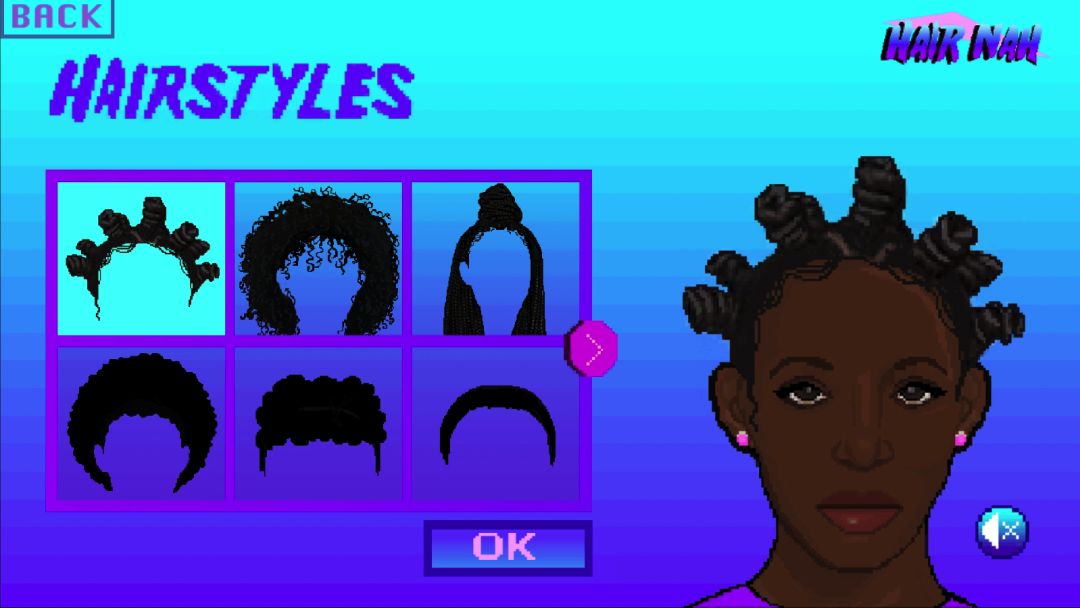
Players can select from six skin tones and 12 hairstyles.
Image: Courtesy Wieden & Kennedy
That ongoing struggle is dramatized in Hair Nah to amusing—but ultimately unamused—effect. Players can select from six skin tones and 12 hairstyles, from afro to braids to locs. After selecting your destination (Havana, Osaka, or Santa Monica Pier), the game begins, with protagonist Aeva staring straight out at the player. As hands claw at Aeva’s hair, the player must whack them away. Successful hits get a juicy “thwap!” Behind the bleeps and bloops of the classic arcade-style music, you can hear an occasional voice. “So fluffy,” an unseen observer coos. “Is it attached to your head?” Throughout, Aeva’s face is unchangingly impassive.
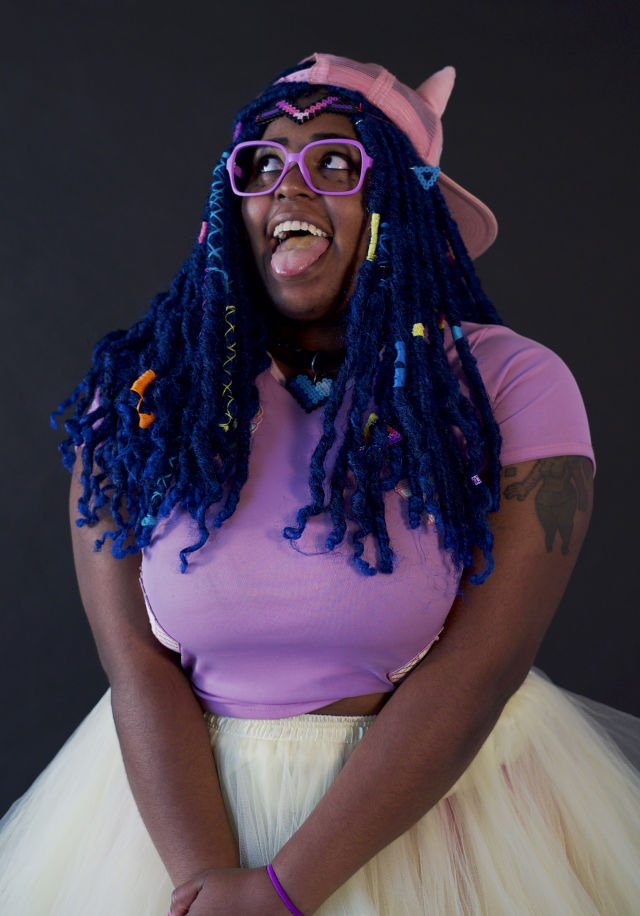
Momo Pixel
Image: Courtesy Wieden & Kennedy
“The facial expression is because she deals with this all the time,” Pixel says. “I’m tired of this; I’ve had to swat these hands my whole life; I’m over it. She’s kind of looking at the player like, ‘Ain’t this some bullshit?’”
The game was born from a conversation Pixel had with her creative directors at Wieden & Kennedy. As she explained the effort of avoiding people’s hands, a colleague began to duck and weave. “I was laughing, but in my head I was like, ‘Yo, this would be a great game,’” Pixel says.
From there, Pixel drew on her love of anime for the game’s color-saturated palette—bright blues, purples, and greens—and collaborated with WK culture analyst Mulu Habtemariam on the bits of text. Made it through to the next level? This might flash onscreen: “Come through melanin. You better show out.” Not so slick? “Dang. That’s whack.”
Though not an official project of the site, Hair Nah is supported by On She Goes, WK’s fledgling travel magazine for women of color. (On She Goes has also covered uninvited hair touching, among other complexities of black hair.)
Since the game’s release, Pixel says she’s been overwhelmed by positive feedback from black women. “A lot of women have been telling me it’s therapy for them,” she says. But she’s also heard from non-black players realizing this is more than an annoyance—it's an invasion of privacy that can impede day-to-day life. That’s spelled out explicitly in the blast of text that meets players upon victory:
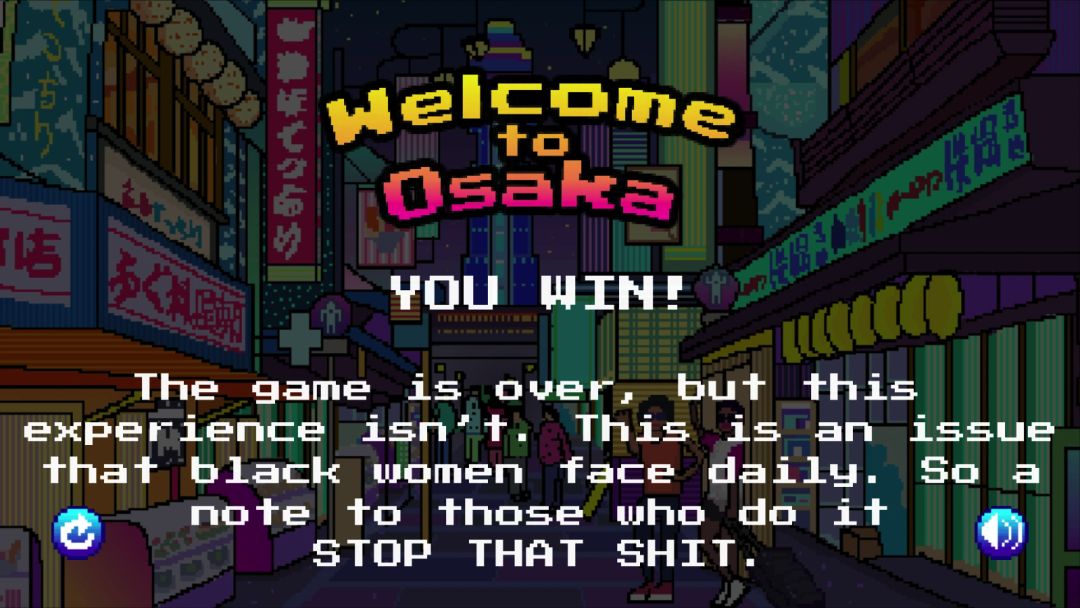
Image: Courtesy Wieden & Kennedy
Adds Pixel: “This game shouldn’t even have to exist.”



